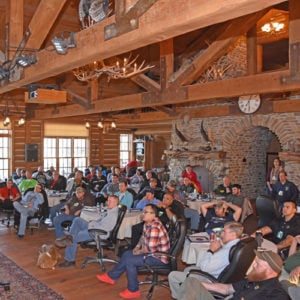After returning from their tour, veterans must make the transition from military to civilian life, which can often come with some detrimental side-effects. Some of these are caused by Post-Traumatic Stress (PTSD) and Traumatic Brain Injury (TBI).
Anxiety is one of these side-effects, and it can manifest itself in several different ways. Generally, however, it is characterized by overwhelming feelings of fear, worry and uneasiness that become mentally–and sometimes physically–disabling in one’s daily life. In many cases, imagining the future can become a source of this apprehension, and those with anxiety adjust negatively to compensate for it.
That said, “anxiety” is an umbrella term that can cover a few groups of symptoms.
The first of these are panic attacks, which are bouts of terror that can seem to either strike at random or because of conditions in the environment. These attacks can cause several physical symptoms, including sweating, chest pains, a racing heart, light-headedness choking sensations, nausea, weakness, trembling or any combination. It also usually triggers a need to escape, loss of control and feelings of despair.
Another aspect of anxiety is social anxiety, which is an overwhelming worry and self-consciousness while in social situations. Symptoms usually involve a fixation on being judged or feeling embarrassed, nervousness around others and being overly sensitive to criticism. Those with social anxiety tend to shy away from interaction with others and have low self-esteem.
A third kind of anxiety is phobias. While similar to fear, a phobia is different in that it usually causes an individual to experience several of the same physical symptoms of panic mentioned above. Additionally, a phobia tends to include a fixation on the object of fear that can intrude on a person’s daily life. A phobia of open spaces–called agoraphobia–has been known to keep people bedridden, for example.
At FMF, our FOCUS program helps those suffering from combat-induced anxiety by giving them the tools to properly manage it. Because many of these symptoms aren’t completely mental, just “getting over it” isn’t always an option. Instead, FMF prioritizes your ability to overcome anxiety at your own pace, taking back control of your own life from the feelings that make it seem like there’s no future.
You’ve already taken the first step to recovery by reaching this site. And you’ve already overcome basic training and earned your Eagle, Globe and Anchor. Making the transition back to civilian life is possible, and we’re here to help.




